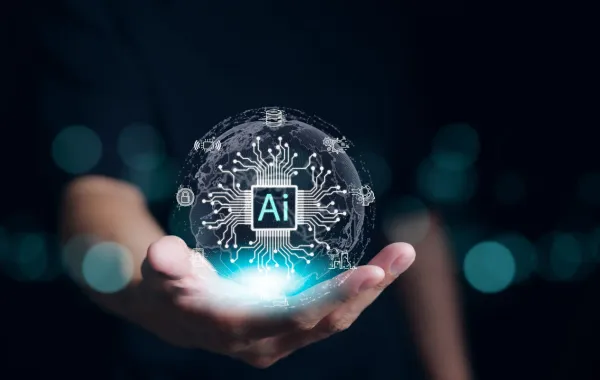Upskilling for the AI-Driven Job Market: Essential Tech Skills for 2025

The job market is changing fast, and artificial intelligence (AI) is at the center of it. From healthcare to marketing, finance to education, AI is reshaping how we work. If you want to stay relevant and competitive in 2025 and beyond, learning the right tech skills is no longer optional, it’s necessary.
In this blog, we’ll break down the most important skills to learn and how they apply to real-world jobs. Whether you're switching careers, starting out, or just trying to future-proof your current role, this guide is for you.
1. Understanding AI Basics

You don’t have to become a data scientist to understand AI. But knowing how AI works and what it can and can’t do gives you an edge.
What to learn:
• How AI and machine learning (ML) work
• Common uses of AI in business
• Ethical concerns around AI (like data privacy and bias)
Why it matters:
This foundational knowledge helps you speak the language of AI, collaborate better with tech teams, and make smarter decisions at work.
2. Data Literacy

AI runs on data. The ability to read, understand, and work with data is one of the most in-demand skills across industries.
What to learn:
• How to collect, clean, and analyze data
• Basic data tools like Excel, SQL, Google Sheets
• Data visualization using tools like Power BI or Tableau
Why it matters:
Even non-technical roles now require data awareness. Marketers, HR professionals, and project managers are expected to make data-driven decisions.
3. Basic Programming Skills

You don’t need to be a developer, but knowing how to write and understand code opens up new opportunities.
What to learn:
• Python (great for automation, data analysis, and AI projects)
• JavaScript (useful for web-based roles)
• Git and GitHub (for version control and collaboration)
Why it matters:
Coding lets you automate tasks, build tools, and work more efficiently with developers and AI systems.
4. Cloud Computing

Most AI tools run in the cloud. Cloud platforms like AWS, Google Cloud, and Microsoft Azure power everything from small business apps to enterprise systems.
What to learn:
• Basics of cloud infrastructure
• How cloud platforms support AI and ML
• Services like AWS S3, Google BigQuery, Azure Machine Learning
Why it matters:
Cloud computing is now part of everyday work, especially in remote teams and digital-first companies.
5. Cybersecurity Awareness

As we rely more on digital tools, security becomes everyone’s responsibility.
What to learn:
• How to protect data and digital assets
• Recognizing phishing and malware threats
• Privacy laws like GDPR and data handling best practices
Why it matters:
Cybersecurity isn't just for IT teams anymore. Every employee needs to understand basic digital safety.
6. AI Tools and Automation Platforms

You don’t have to build AI tools to use them. Learning how to use AI-powered platforms can boost your productivity and value.
What to explore:
• ChatGPT and other AI writing tools
• No-code platforms like Zapier, Notion AI, Airtable
• Automation tools in Google Workspace or Microsoft Office
Why it matters:
These tools save time, increase efficiency, and can help small teams do big things.
7. Soft Skills That AI Can’t Replace

As tech gets smarter, human skills become even more important.
Focus on:
• Critical thinking
• Communication and storytelling with data
• Collaboration across remote and hybrid teams
• Adaptability and continuous learning
Why it matters:
AI can process information, but it can’t lead teams, empathize, or innovate like humans. These skills keep you employable in a tech-heavy world.
How to Get Started
• Free courses: Platforms like Coursera, edX, and Google Digital Garage offer free, beginner-friendly courses.
• Certifications: Consider short, industry-recognized courses (e.g., Google Data Analytics, Microsoft AI Fundamentals).
• Practice: Build small projects. Automate something at work. Join online communities.
Final Thoughts
The future of work is already here
and AI is a big part of it. Upskilling now gives you a head start. You don’t need to learn everything overnight. Start small, stay consistent, and stay curious. The more you learn, the more doors will open in this new AI-driven job market.





